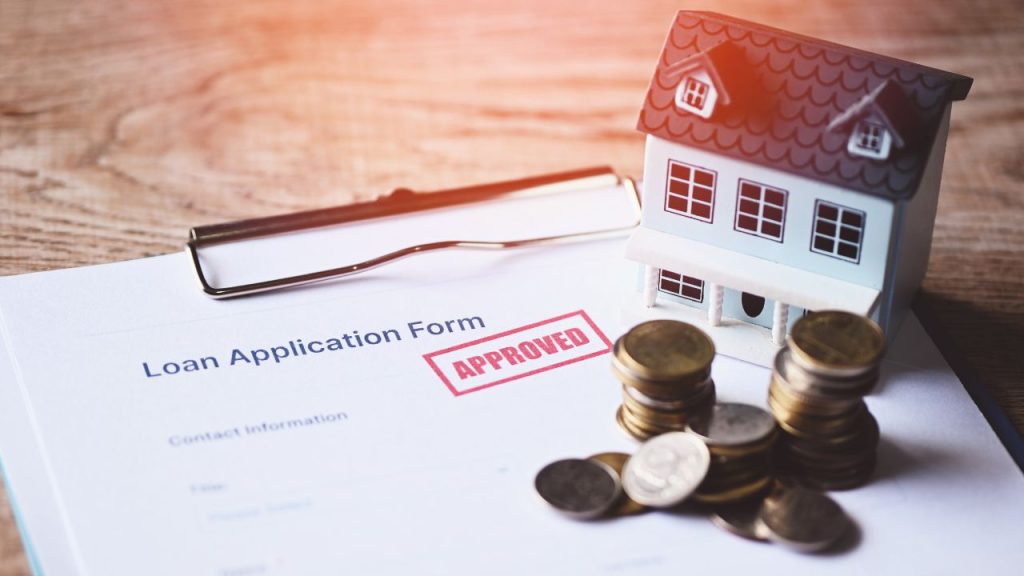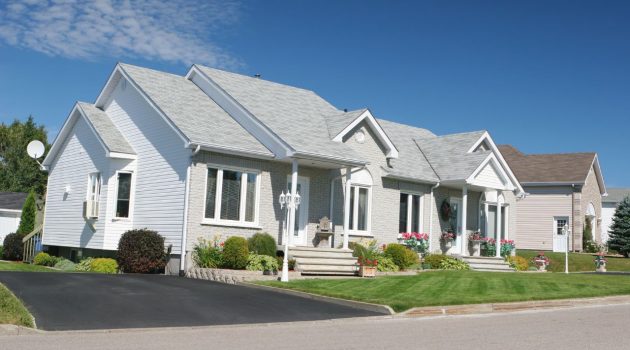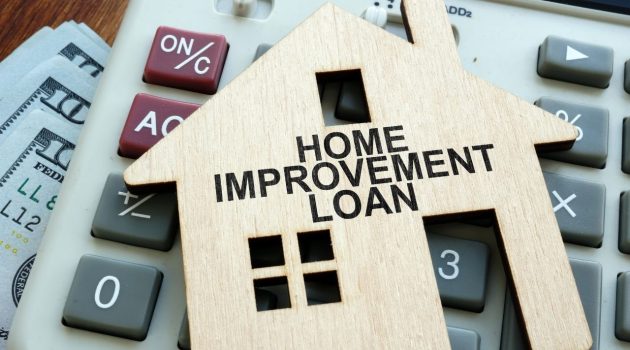Purchasing your first home is an exciting milestone but can also be overwhelming, especially regarding financing.
As a first-time home buyer, you’d be happy to know that many types of home loans are designed specifically for people like you.
These loans aim to make homeownership more accessible and affordable by offering benefits, such as lower down payments and flexible qualification requirements.
Before diving into the vast world of mortgage options, it’s essential to familiarize yourself with the various types of loans available and the benefits each one offers.
Some popular options for first-time buyers include government-backed loans, like FHA, VA, and USDA loans, and programs that provide down payment assistance.
These loans often have more relaxed qualification standards, making it easier for those with lower income or limited credit history to secure a mortgage.
Taking the time to explore and understand the different mortgage options will help you make an informed decision and set you on the path to owning your dream home.
So, as you embark on your homebuying journey, remember to arm yourself with knowledge and leverage the resources available to find the perfect home loan tailored to your needs.
1. Understanding Home Loans

As a first-time home buyer, you might feel overwhelmed by securing a home loan. Let’s break down some essential factors to help you understand your options.
Loan Terminology
Familiarize yourself with some common loan terms to help make sense of your options:
- Principal: The original amount of the loan, not including interest.
- Interest: The cost of borrowing money, expressed as a percentage of the principal.
- Amortization: The gradual repayment of a loan through scheduled installments over a specific period.
- Down payment: The initial payment you make toward the home’s purchase price.
- Closing costs: Fees and expenses paid at the end of the mortgage process, often including origination fees, title fees, and appraisal costs.
Interest Rates
The interest rate is a key factor in determining the cost of your mortgage loan. Here are some important aspects to consider:
- Fixed-rate mortgage: This type of loan has a fixed interest rate for the entire loan term, offering predictable monthly payments. It’s a good choice if you plan to stay in your home for a significant period and want stability in your budget.
- Adjustable-rate mortgage (ARM): This loan type has an interest rate that may change periodically, affecting your monthly payment. An ARM can be beneficial if you expect interest rates to decrease or plan to move before the rate adjusts.
Remember that several first-time home buyer loan options, such as government-backed FHA, VA, and USDA loans, are available.
These options often come with reduced or $0 down payment requirements and lower credit score criteria. They may also offer more competitive interest rates than traditional mortgage loans.
Ensure that you compare different loans, interest rates, and terms before deciding, as they can significantly impact your monthly mortgage payment and overall homeownership costs.
2. Types of Home Loans

When you’re a first-time homebuyer, it’s important to understand the different types of loans available to you.
Conventional Loans
Conventional loans are the most common type of home loan. Private lenders like banks, credit unions, and mortgage companies offer them.
The requirements for down payments, credit scores, and income levels vary depending on the lender. Some key aspects to consider about conventional loans include:
- Most require a down payment of at least 5%.
- Private Mortgage Insurance (PMI) is typically required if your down payment is less than 20%.
- Credit score requirements can vary but are usually around 620 or higher.
FHA Loans
FHA loans are insured by the Federal Housing Administration and are designed to help first-time homebuyers with lower credit scores or limited down payment funds.
Here are some characteristics of FHA loans:
- Down payment as low as 3.5%.
- Credit score requirements are typically lower, with some lenders accepting scores as low as 500.
- Mortgage insurance is required, regardless of the down payment amount.
VA Loans
VA loans may be an option if you are a veteran, active-duty service member, or eligible surviving spouse.
The US Department of Veterans Affairs guarantees these loans and offers several advantages:
- No down payment required.
- No mortgage insurance needed.
- Competitive interest rates and terms, with the possibility of negotiating the closing costs with the seller.
USDA Loans
USDA loans are backed by the United States Department of Agriculture and are designed to help homebuyers purchase property in eligible rural areas.
Some benefits of USDA loans include:
- No down payment required.
- Lower mortgage insurance premiums compared to FHA loans.
- Income restrictions may apply, depending on the location and size of your household.
Jumbo Loans
Jumbo loans are designed for homebuyers who need a larger loan amount than what’s typically offered by conventional loan programs due to the high cost of the property.
Key points about jumbo loans are:
- Loan amounts exceed the conforming loan limit the Federal Housing Finance Agency set.
- May require a higher credit score and larger down payment than conventional loans.
- Interest rates can be competitive, but only sometimes guaranteed.
Special Programs
In addition to the loan types mentioned above, special programs are tailored to help first-time homebuyers.
These programs typically offer financial assistance, reduced closing costs, or more flexible loan terms. Examples of special programs include:
- State and local first-time homebuyer programs.
- Down payment assistance programs.
- Fannie Mae’s HomeReady® program and Freddie Mac’s Home Possible® program.
By understanding the various home loans available to you, you’ll be better equipped to make informed decisions when pursuing your dream of homeownership.
You can try low-doc loans if you do not have the usual documents for a standard home loan application.
Remember to do thorough research, shop around, and consult with a mortgage professional to find the best loan for your unique situation.
3. Home Loan Requirements

As a first-time home buyer, it’s essential to understand these requirements to increase your chances of success in obtaining a mortgage.
Income Requirements
Your income plays a significant role in qualifying for a mortgage. Lenders will look at your debt-to-income (DTI) ratio, which compares your monthly debt payments to your gross monthly income.
Typically, lenders want your DTI ratio to be below 43%, but ideally around 36% or lower. To improve your chances of loan approval:
- Maintain a stable job with a consistent income.
- Reduce your existing debt.
- Save money for a down payment to lower the loan amount needed.
Credit Scores Importance
Credit scores are crucial in determining your eligibility for a home loan. Lenders use your credit score to assess your creditworthiness and loan repayment ability.
Generally, a credit score of at least 580 is required for FHA loans with a 3.5% down payment. However, with a 10% down payment, you may qualify for an FHA loan with a credit score as low as 500.
To increase your credit score:
- Pay your bills on time.
- Keep your credit card balances low.
- Avoid applying for multiple credit accounts in a short period.
Down Payment Requirements
The down payment is one of first-time home buyers’ most notable financial requirements. Depending on the loan type, many loan programs require a minimum down payment.
Here are some common down payment requirements:
- FHA Loans: 3.5% down payment with a credit score of 580 or higher, 10% with a credit score between 500-579.
- Conventional Loans: Typically, a 5% to 20% down payment.
- USDA/RHS Loans: No down payment required.
- VA Loans: No down payment required for eligible military and veteran borrowers.
Remember, saving for a higher down payment can lower your monthly mortgage payments and improve your overall financial position.
READ MORE: How to Finance a Barndominium
4. Financing and Costs

Buying your first home can be an exciting experience, but it’s important to understand the different financing options and costs associated with it.
Loan Terms
When looking for a home loan, the loan term is one of the most important factors. The term is the amount of time you have to repay the loan, typically ranging from 15 to 30 years.
A shorter term often means higher monthly payments, but you’ll pay less interest in the long run. A longer term, like 30 years, results in lower monthly payments but more interest paid over time.
Some loans offer adjustable rate mortgages (ARMs) with varying interest rates throughout the loan term, providing flexibility in payment amounts.
Mortgage Insurance
For some loans, especially those with a down payment less than 20%, you may be required to pay for mortgage insurance.
This insurance protects the lender in case you default on your loan. There are two types of mortgage insurance:
- Mortgage Insurance Premium (MIP): This is required for government-backed FHA loans. MIP is typically paid upfront and as an annual percentage of your loan amount, spread out in monthly payments.
- Private Mortgage Insurance (PMI): PMI is required for conventional loans when you have a down payment of less than 20%. PMI rates vary based on your credit score and down payment amount, which can be paid upfront or monthly.
Remember that once you have 20% equity in your home, you can refinance or cancel your mortgage insurance, reducing your monthly expenses.
Closing Costs
When you finalize your home loan, there are various fees and charges known as closing costs. These costs include loan origination fees, appraisal fees, title insurance, and more.
On average, closing costs are about 2% to 5% of the home’s purchase price.
As a first-time home buyer, you may be eligible for assistance programs that can help cover some of these costs.
Be sure to research available options and ask your lender about any discounts or credits that might apply to you.
Conclusion
As a first-time homebuyer, you have several loan options to consider, such as government-backed FHA, VA, and USDA loans.
Each loan type has unique requirements and benefits, so it’s essential to carefully assess which is best for your financial situation and homeownership goals.
FHA loans are popular for those with lower credit scores and limited down payment savings.
They offer flexibility and relatively low down payment requirements, making them an accessible option for many first-time buyers.
VA loans, available to eligible veterans and service members, provide a great opportunity to secure a mortgage with no down payment and potentially lower interest rates.
This can make homeownership attainable for those who have served our country.
USDA loans target buyers in rural areas, and they also offer the possibility of zero down payment and competitive interest rates.
This can be a perfect fit for homebuyers looking to settle down in a small town or agricultural community.
As you navigate the home buying journey, remember to stay proactive in your research and seek professional advice when needed.
Homebuyer education courses may be required for some loans, but they can also be a helpful resource for gaining valuable knowledge and confidence as you embark on this new chapter of your life.
Good luck, and happy house hunting!



